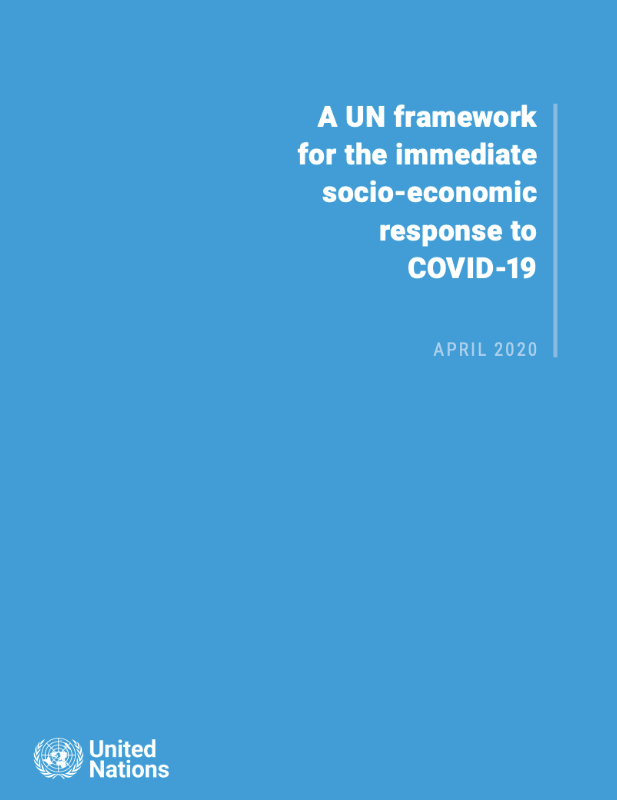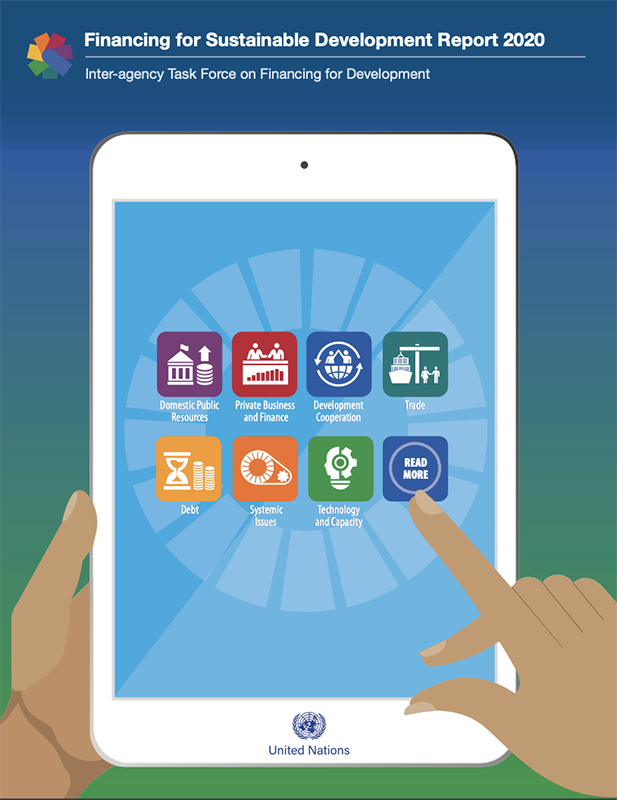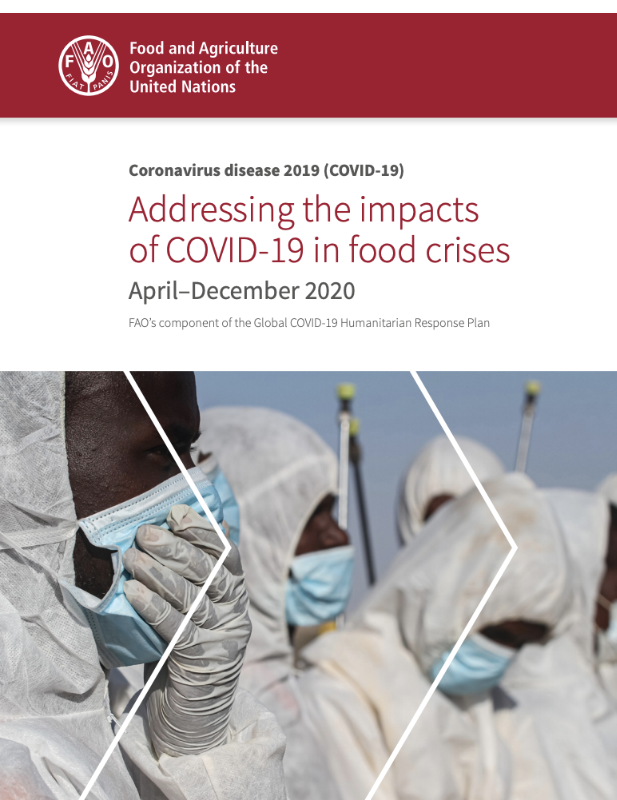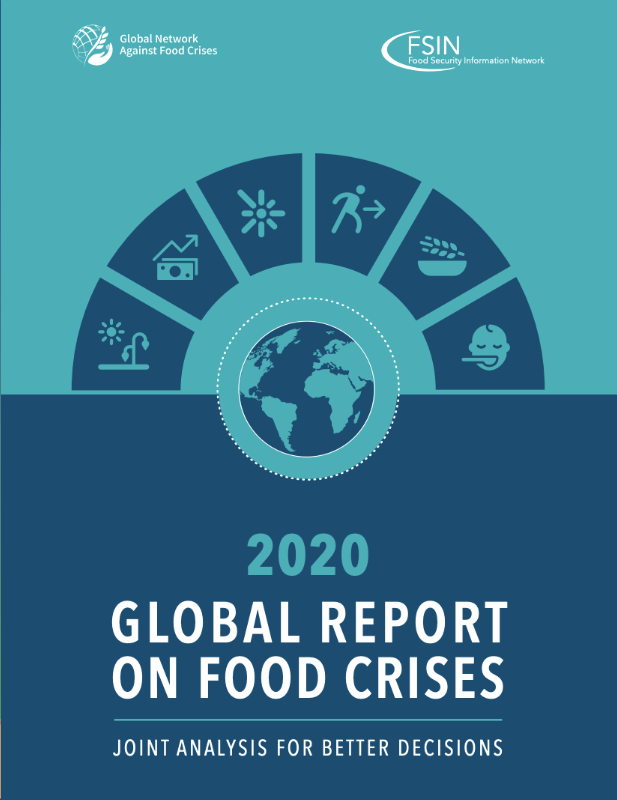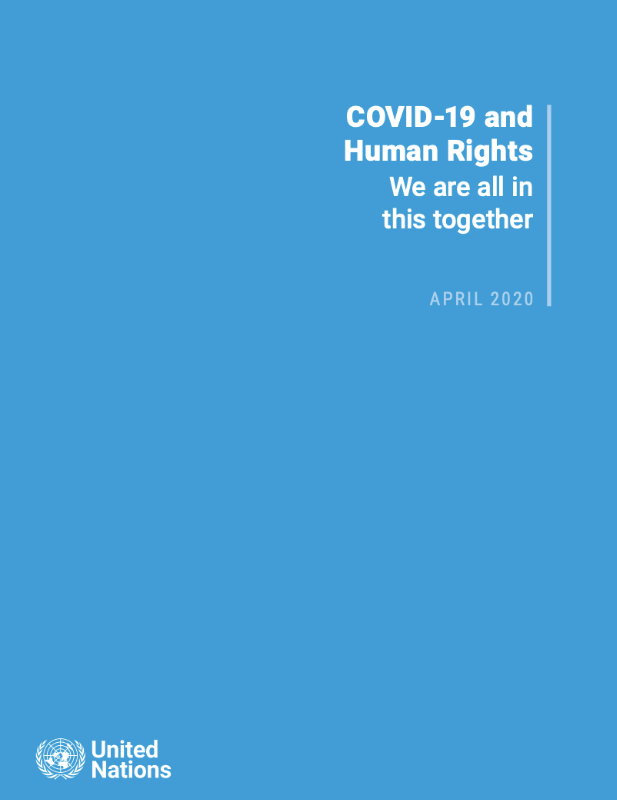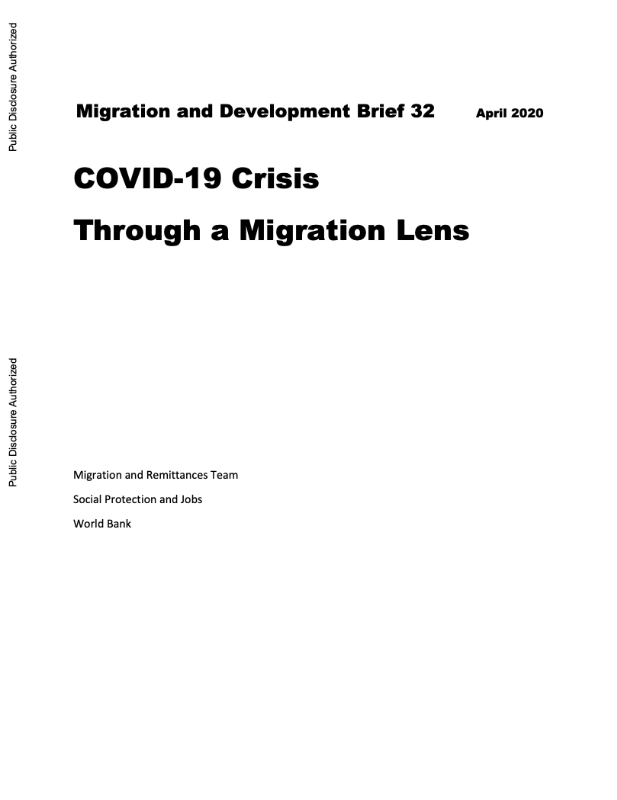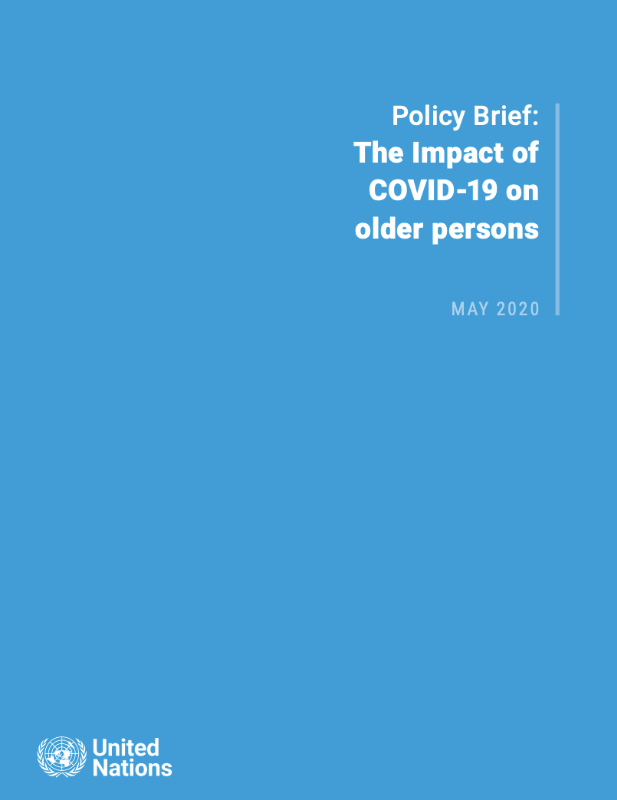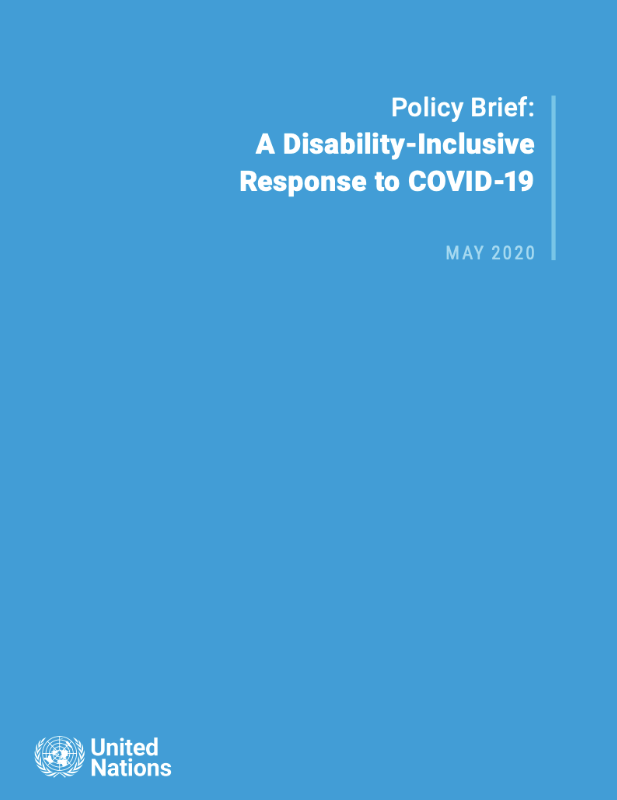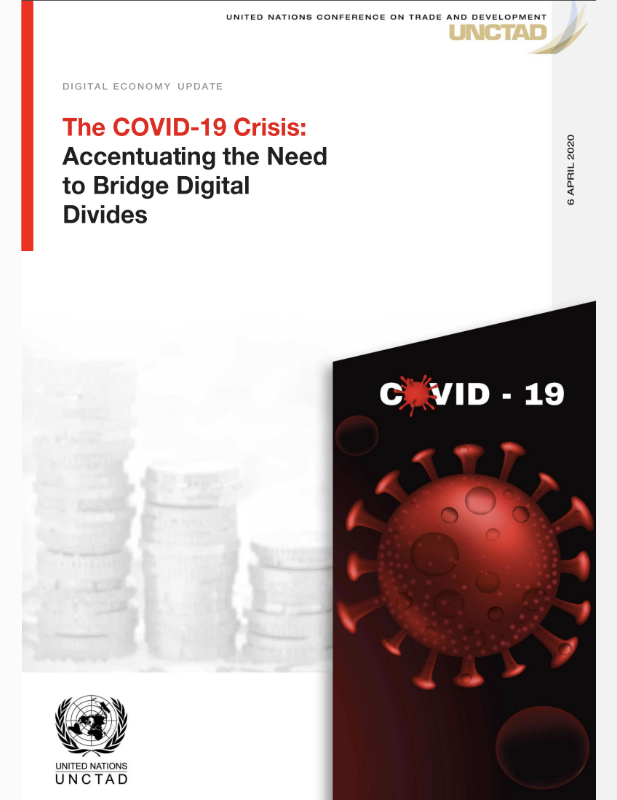“… the [corona]virus does not discriminate, but its impacts do — exposing deep weaknesses in the delivery of public services and structural inequalities that impede access to them.” – UN Secretary-General António Guterres
 COVID-19 is not only challenging global health systems but testing our common humanity. It affects everyone everywhere, yet it hits the poorest and most vulnerable communities the hardest, deepening existing inequalities. At the same time, social, political and economic inequalities are amplifying the impacts of the pandemic.
COVID-19 is not only challenging global health systems but testing our common humanity. It affects everyone everywhere, yet it hits the poorest and most vulnerable communities the hardest, deepening existing inequalities. At the same time, social, political and economic inequalities are amplifying the impacts of the pandemic.
In May, the Goal of the Month editorial looks at Sustainable Development Goal 10: Reducing Inequalities – including the multifaceted impact of the pandemic and the need to build back economies and societies that are more equal, inclusive, sustainable and resilient in the face of pandemics, climate change, and other defining issues of our time.
UN News talks to the UN Deputy Secretary-General about the impact of the pandemic on the Sustainable Development Goals and how it is “exposing the frailties and inequalities of our societies.” Read the interview here.
This time of crisis is also an opportunity to invest in policies that can turn the tide on inequality, according to a new UN policy brief.
At A Glance: Impact on People
49 million
Estimated number of people who could be pushed into extreme poverty in 2020 (World Bank)
265 million
Estimated number of people that could be pushed to the brink of starvation. (WFP)
305 million
Number of jobs expected to be lost worldwide in the second quarter of 2020. (ILO)
1 billion
Approximate number of people living in densely-populated slums and informal settlements in cities, at high risk of infection. (UN-Habitat)
RISE FOR ALL
“We cannot afford to go back to the world we had before this crisis. That would mean leaving unaddressed the vulnerabilities and fragilities that this crisis has brought into plain sight.” – UN Deputy Secretary-General Amina Mohammed
Women leaders from around the world, led by Deputy Secretary-General Amina Mohammed, recently launched Rise For All – a global advocacy effort calling for solidarity and urgent action to mobilize support for the most vulnerable and funding for the COVID-19 Response and Recovery Fund.
SOCIO-ECONOMIC IMPACT
“What we do now will not only reshape our economies and societies; it will also reshape humanity’s future on this planet.” – Managing Director of the International Monetary Fund Kristalina Georgieva
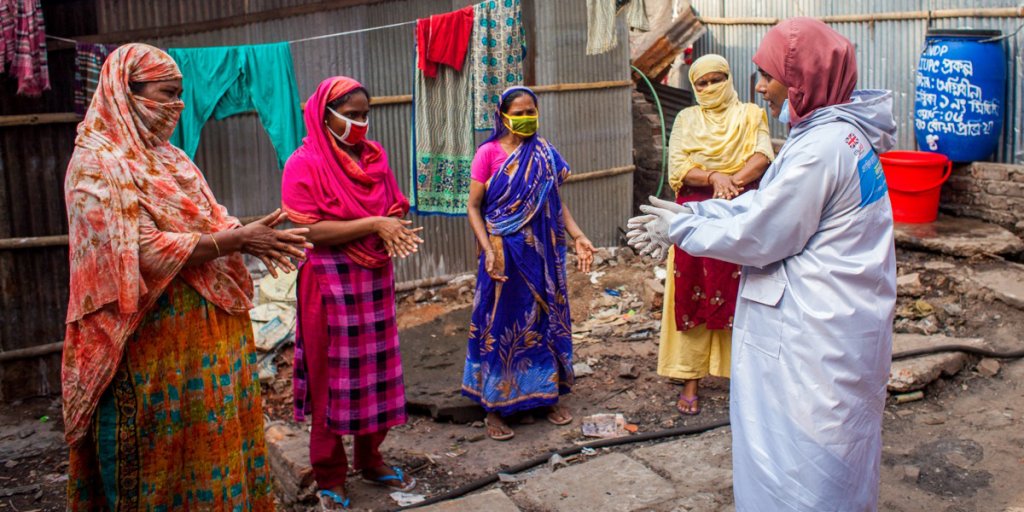
The International Monetary Fund’s latest World Economic Outlook warned that the global economy is projected to contract sharply by 3 per cent in 2020, experiencing its worst recession since the Great Depression, surpassing that seen during the global financial crisis a decade ago.
Called the Great Lockdown, the pandemic will continue to escalate global suffering and jeopardize millions of lives and livelihoods for years to come, says the UN report A UN framework for the immediate socio-economic response to COVID-19, calling for an extraordinary scale-up of international support and political commitment to ensure that people everywhere have access to essential services and social protection.
The UN Secretary-General called for solidarity with the world’s poorest and most vulnerable who need urgent support in responding to the worst economic and social crisis in generations. “Now is the time to stand by our commitment to leave no one behind,” the Secretary-General said.
The World Economic Situation and Prospects 2020 mid-year update — to be released on 13 May – presents growth forecasts, highlights the macroeconomic impacts of the COVID19 pandemic, and outlines policy responses and post-crisis recovery scenarios.
Latest Resources:
FOOD SECURITY
“We must act now to prevent the health pandemic from becoming a hunger catastrophe.” – Executive Director of the World Food Programme David Beasley

Agricultural production has contracted, and food supply chains have been negatively affected, says the Food and Agriculture Organization (FAO). There has been a sharp decline in demand and production of food products from developed countries, contributing to a global recession. Moreover, loss of jobs, businesses and other shocks to income affects the food security and nutrition of the poorest countries and communities.
- In the absence of timely and effective policies, millions of people are likely to join the ranks of the hungry as a result of the COVID-19-triggered recession. (FAO)
- If the global economy shrinks by 3 per cent, the number of undernourished people in food-importing countries would increase by 14.4 million to 80.3 million, mostly in low-income countries. (FAO)
- More than a quarter of a billion people will suffer from acute hunger by the end of the year. That’s 265 million people in low and middle-income countries, up from a current 135 million. (WFP)
- An estimated 370 million children are missing out on school meals amid school closures. (WFP)
GENDER EQUALITY
“We must not only survive the coronavirus, but emerge renewed, with women as a powerful force at the centre of recovery.” – Executive Director of UN Women Phumzile Mlambo-Ngcuka
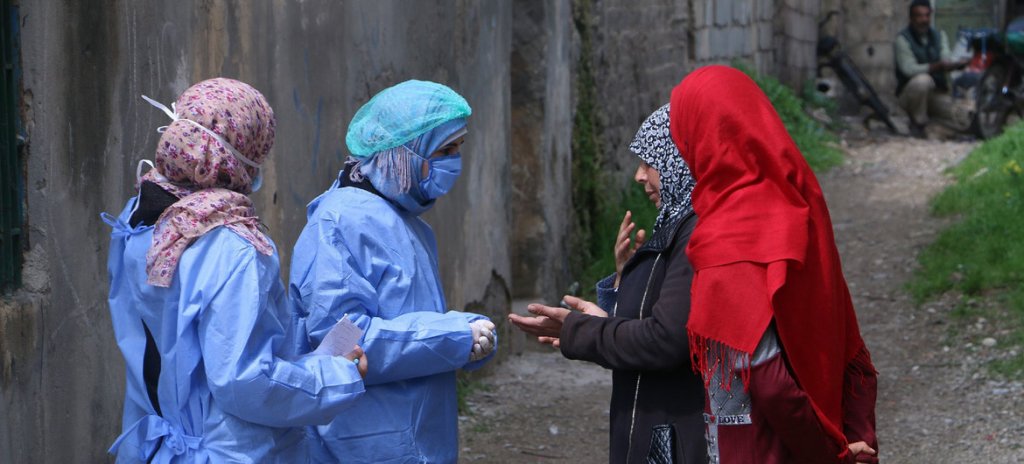
From farming to first-response services and everything in between, women are playing an outsized role in keeping their communities safe and resilient in the face of COVID-19, says UN Women. And the impacts of COVID-19 are exacerbated for women and girls simply by virtue of their sex.
- Women play a disproportionate role in responding to the virus, including as frontline healthcare workers and caregivers. Globally, women make up the majority of workers in the health and social sectors. (WHO)
- Women disproportionately work in insecure labour markets and are harder hit by the economic impacts caused by COVID-19. Nearly one in three women work in agriculture, and women do three times as much unpaid care work at home as men. (UN Women)
- Emerging data shows that since the outbreak, violence against women and girls, particularly domestic violence has intensified. Globally, 243 million women and girls have experienced sexual and/or physical violence by an intimate partner in the last 12 months. (UN Women)
Latest Resources:
UN Women Issue Brief and Infographic: COVID-19 and Violence against Women and Girls
STIGMA, DISCRIMINATION AND XENOPHOBIA
“The pandemic is exposing the damaging impact of inequalities, in every society.” – UN High Commissioner for Human Rights Michelle Bachelet
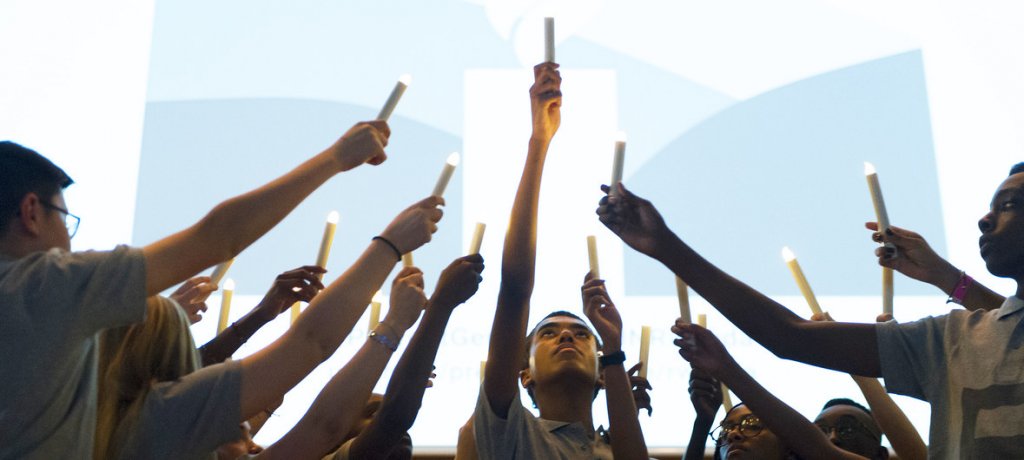
COVID-19 is a test of societies, of governments, of communities and of individuals, says the UN Human Rights Office. Disproportionate effects on certain communities are emerging – the rise of hate speech, the targeting of vulnerable groups, and the risks of heavy-handed security responses undermining the health response.
In his recent Policy Brief on COVID-19 and Human Rights, Secretary-General António Guterres asserts that “people and their rights must be front and centre” in COVID-19 response and recovery.
- Migrants and refugees, often held in camps or detention in overcrowded facilities, are at heightened risk and need access to protection and health care services. (UNHCR and IOM)
- “Scattered reports” show LGBTI people being blamed for the disease, while police in some countries have used COVID-19 directives to attack and target LGBTI organizations. (OHCHR)
- Reports of “flare-up” in existing religious intolerance in many countries.(OHCHR)
- The rights and dignity of older persons need to be respected as the COVID-19 pandemic is causing untold fear and suffering for older people across the world. (UN)
- The pandemic is compounding the precarious situation that most indigenous peoples find themselves in today. (Interagency Group)
- Persons with disabilities are disproportionately impacted due to attitudinal, environmental and institutional barriers that are reproduced in the COVID-19 response. (OHCHR)
Latest Resources:
DIGITAL DIVIDE
“We need to ensure that we do not leave those who are less digitally equipped even further behind in a post-coronavirus world.” – UNCTAD Technology and Logistics Director Shamika Sirimanne

COVID-19 has accelerated the uptake of digital solutions, tools, and services, speeding up the global transition towards a digital economy, says the UN Conference on Trade and Development (UNCTAD). However, it has also exposed the wide chasm between the connected and the unconnected, revealing just how far behind many are on digital uptake.
Socially marginalized groups, including rural communities, persons with disabilities, young people and children, and women and girls, who are often excluded from digital development opportunities, are disproportionately affected.
- Half of all students currently out of the classroom – or nearly 830 million learners globally — do not have access to a computer. Additionally, more than 40 per cent have no Internet access at home. (UNESCO)
- In sub-Saharan Africa, 89 per cent of learners do not have access to household computers and 82 per cent lack internet access. (UNESCO)
- About 56 million learners live in locations not served by mobile networks, almost half in sub-Saharan Africa. (UNESCO)
UNITED NATIONS COVID-19 RESPONSE CREATIVE CONTENT HUB
For illustrations, gifs, audio clips and videos made available by creatives around the world in support of the UN’s work on addressing the health emergency, promoting solidarity and countering misinformation, please visit the United Nations COVID-19 Response Creative Content Hub.
UN RESOURCES
More UN resources are available on the dedicated UN coronavirus portal, which also highlights the UN System’s response. UN DESA Voice provides blogs and resources on the economic and social impact of the pandemic. Find out more about the critical need to foster social inclusion in the time of COVID-19. Check out the UN News site and the resources for broadcasters.


